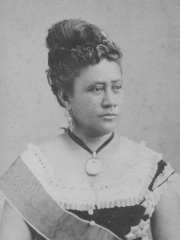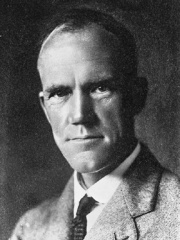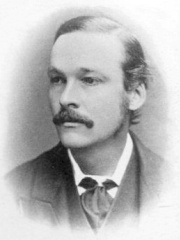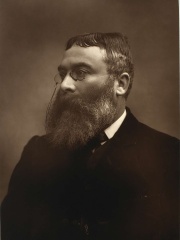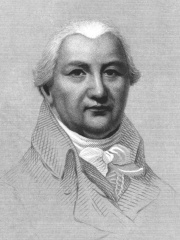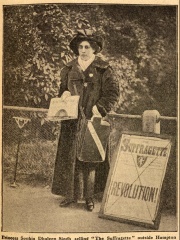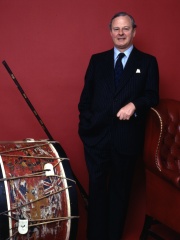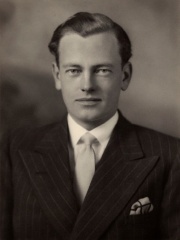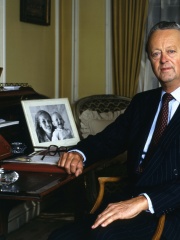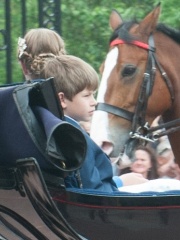NOBLEMAN
Anna of East Anglia

 Anna of East Anglia
Anna of East Anglia
Anna (or Onna; killed 653 or 654) was king of East Anglia from the early 640s until his death. He was a member of the Wuffingas family, the ruling dynasty of the East Angles, and one of the three sons of Eni who ruled the kingdom of East Anglia, succeeding some time after Ecgric was killed in battle by Penda of Mercia. Anna was praised by Bede for his devotion to Christianity and was renowned for the saintliness of his family: his son Jurmin and all his daughters – Seaxburh, Æthelthryth, Æthelburh and possibly a fourth, Wihtburh – were canonised. Little is known of Anna's life or his reign, as few records have survived from this period. Read more on Wikipedia
His biography is available in 16 different languages on Wikipedia. Anna of East Anglia is the 1,381st most popular nobleman (down from 1,365th in 2024), the 5,882nd most popular biography from United Kingdom (down from 5,640th in 2019) and the 85th most popular British Nobleman.
Memorability Metrics
Page views of Anna of East Anglia by language
Among NOBLEMEN
Among noblemen, Anna of East Anglia ranks 1,381 out of 1,415. Before him are Ealdwulf of East Anglia, Prince Maximilian of Liechtenstein, Princess Ariane of the Netherlands, Prince Philippos of Greece and Denmark, Gustav, 7th Prince of Sayn-Wittgenstein-Berleburg, and En-men-dur-ana. After him are Ælfgifu of Shaftesbury, Prince Louis of Luxembourg, George Windsor, Earl of St Andrews, Prince Felix of Denmark, Kapiʻolani, and Princess Alexia of the Netherlands.
Most Popular Noblemen in Wikipedia
Go to all RankingsEaldwulf of East Anglia
700 - 713
HPI: 50.36
Rank: 1,375
Prince Maximilian of Liechtenstein
1969 - Present
HPI: 50.36
Rank: 1,376
Princess Ariane of the Netherlands
2007 - Present
HPI: 50.28
Rank: 1,377
Prince Philippos of Greece and Denmark
1986 - Present
HPI: 50.19
Rank: 1,378
Gustav, 7th Prince of Sayn-Wittgenstein-Berleburg
1969 - Present
HPI: 50.07
Rank: 1,379
En-men-dur-ana
HPI: 50.03
Rank: 1,380
Anna of East Anglia
HPI: 49.88
Rank: 1,381
Ælfgifu of Shaftesbury
HPI: 49.84
Rank: 1,382
Prince Louis of Luxembourg
1986 - Present
HPI: 49.78
Rank: 1,383
George Windsor, Earl of St Andrews
1962 - Present
HPI: 49.56
Rank: 1,384
Prince Felix of Denmark
2002 - Present
HPI: 49.50
Rank: 1,385
Kapiʻolani
1834 - 1899
HPI: 49.45
Rank: 1,386
Princess Alexia of the Netherlands
2005 - Present
HPI: 49.44
Rank: 1,387
In United Kingdom
Among people born in United Kingdom, Anna of East Anglia ranks 5,884 out of 8,785. Before him are Thomas Griffith Taylor (1880), Adrian Metcalfe (1942), Marian McPartland (1918), Francis Maitland Balfour (1851), Tony Cascarino (1962), and Walter Besant (1836). After him are Guy Chambers (1963), Charles Hutton (1737), Jackie Henderson (1932), Sophia Duleep Singh (1876), Kate Dickie (1971), and Serena Scott Thomas (1961).
Others born in United Kingdom
Go to all RankingsThomas Griffith Taylor
GEOGRAPHER
1880 - 1963
HPI: 49.91
Rank: 5,878
Adrian Metcalfe
ATHLETE
1942 - 2021
HPI: 49.91
Rank: 5,879
Marian McPartland
MUSICIAN
1918 - 2013
HPI: 49.91
Rank: 5,880
Francis Maitland Balfour
BIOLOGIST
1851 - 1882
HPI: 49.90
Rank: 5,881
Tony Cascarino
SOCCER PLAYER
1962 - Present
HPI: 49.90
Rank: 5,882
Walter Besant
WRITER
1836 - 1901
HPI: 49.89
Rank: 5,883
Anna of East Anglia
NOBLEMAN
HPI: 49.88
Rank: 5,884
Guy Chambers
MUSICIAN
1963 - Present
HPI: 49.87
Rank: 5,885
Charles Hutton
MATHEMATICIAN
1737 - 1823
HPI: 49.87
Rank: 5,886
Jackie Henderson
SOCCER PLAYER
1932 - 2005
HPI: 49.86
Rank: 5,887
Sophia Duleep Singh
POLITICIAN
1876 - 1948
HPI: 49.86
Rank: 5,888
Kate Dickie
ACTOR
1971 - Present
HPI: 49.85
Rank: 5,889
Serena Scott Thomas
ACTOR
1961 - Present
HPI: 49.85
Rank: 5,890
Among NOBLEMEN In United Kingdom
Among noblemen born in United Kingdom, Anna of East Anglia ranks 85. Before him are James Carnegie, 3rd Duke of Fife (1929), David Mountbatten, 3rd Marquess of Milford Haven (1919), John Spencer-Churchill, 11th Duke of Marlborough (1926), James, Viscount Severn (2007), Prince Louis of Cambridge (2018), and Prince Philippos of Greece and Denmark (1986). After him are George Windsor, Earl of St Andrews (1962), Lord Nicholas Windsor (1970), Archie Mountbatten-Windsor (2019), Hugh Grosvenor, 7th Duke of Westminster (1991), Alexander Windsor, Earl of Ulster (1974), and Prince Joseph Wenzel of Liechtenstein (1995).
James Carnegie, 3rd Duke of Fife
1929 - 2015
HPI: 54.04
Rank: 79
David Mountbatten, 3rd Marquess of Milford Haven
1919 - 1970
HPI: 53.69
Rank: 80
John Spencer-Churchill, 11th Duke of Marlborough
1926 - 2014
HPI: 53.51
Rank: 81
James, Viscount Severn
2007 - Present
HPI: 52.39
Rank: 82
Prince Louis of Cambridge
2018 - Present
HPI: 50.66
Rank: 83
Prince Philippos of Greece and Denmark
1986 - Present
HPI: 50.19
Rank: 84
Anna of East Anglia
HPI: 49.88
Rank: 85
George Windsor, Earl of St Andrews
1962 - Present
HPI: 49.56
Rank: 86
Lord Nicholas Windsor
1970 - Present
HPI: 48.51
Rank: 87
Archie Mountbatten-Windsor
2019 - Present
HPI: 48.25
Rank: 88
Hugh Grosvenor, 7th Duke of Westminster
1991 - Present
HPI: 47.69
Rank: 89
Alexander Windsor, Earl of Ulster
1974 - Present
HPI: 45.40
Rank: 90
Prince Joseph Wenzel of Liechtenstein
1995 - Present
HPI: 44.95
Rank: 91










